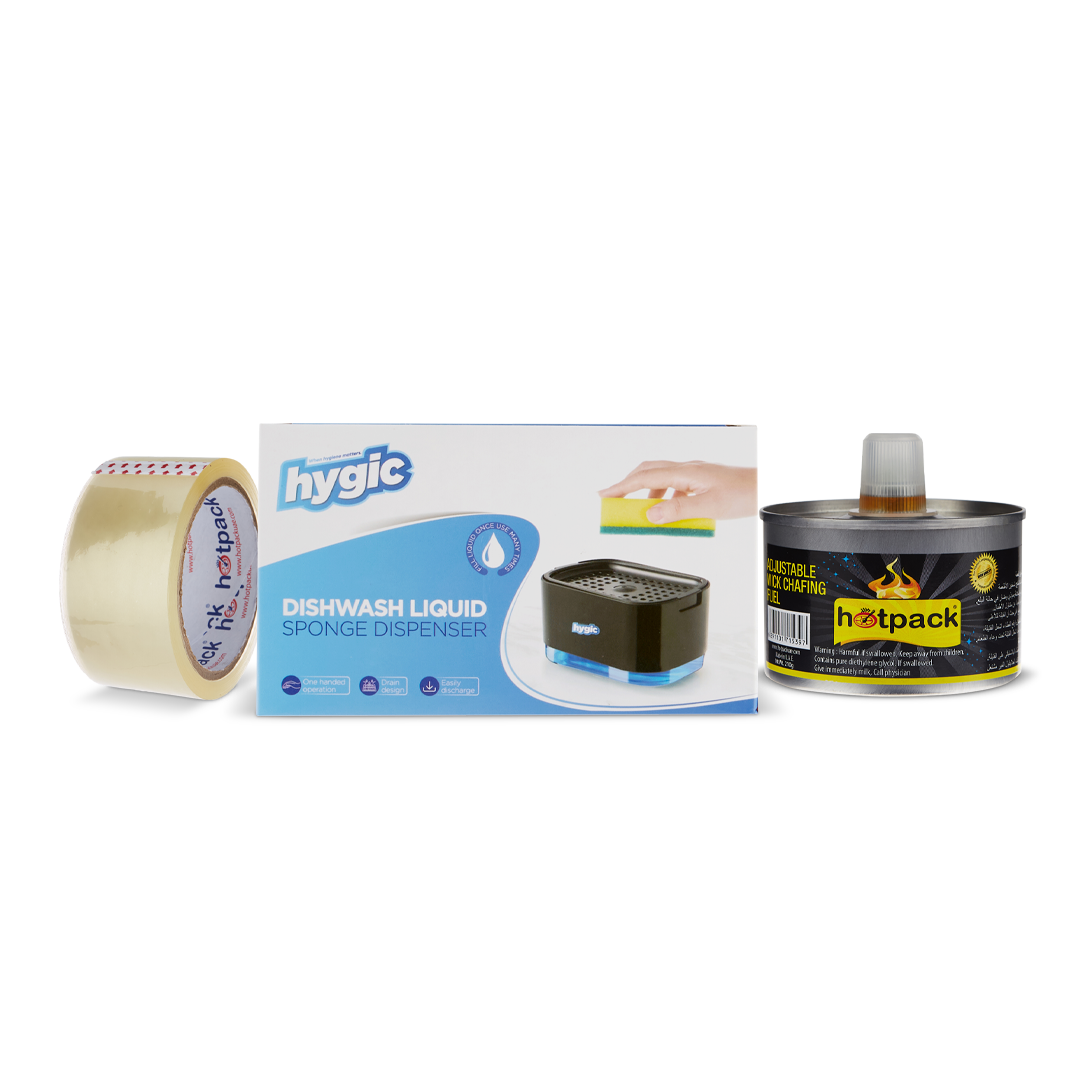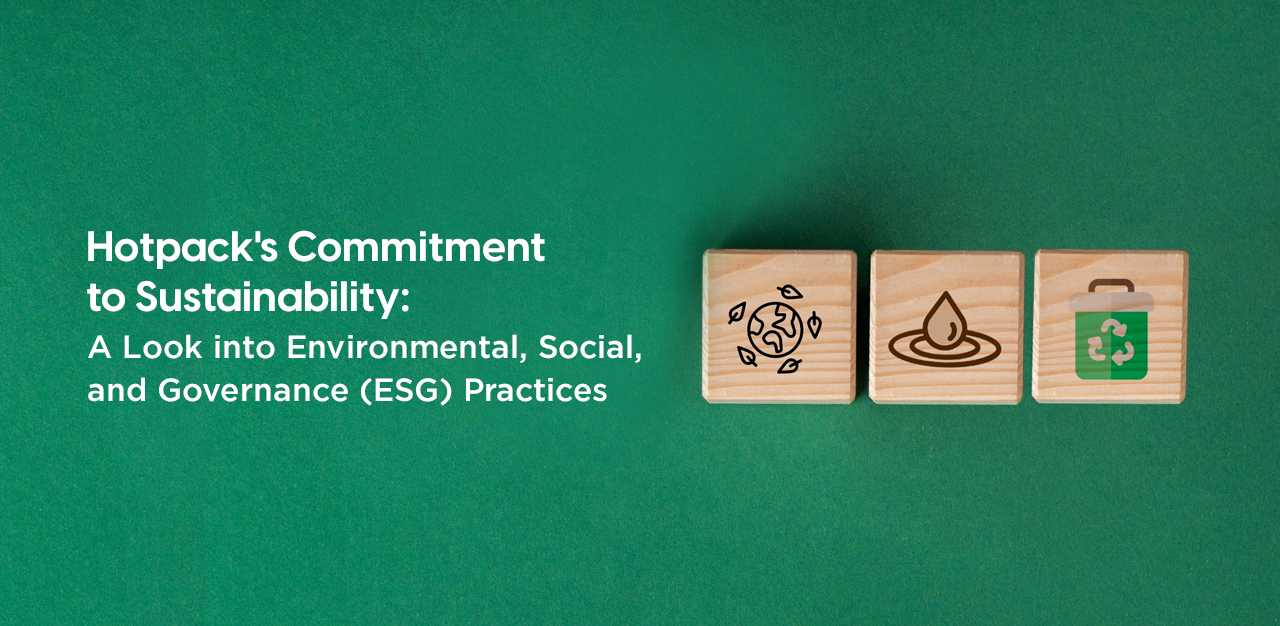In today’s world, sustainability is a critical part of how businesses operate. Companies worldwide are increasingly adopting Environmental, Social, and Governance (ESG) practices to ensure they contribute positively to the planet and society while maintaining strong governance standards. Hotpack, the famous UAE-based company specializing in sustainable packaging solutions for the food industry, is a shining example of how businesses can align with ESG principles while succeeding in their respective industries.
What are Environmental, Social, and Governance (ESG) Practices?
Environmental, Social, and Governance (ESG) practices encompass a set of criteria that companies use to evaluate their impact on the environment, society, and corporate governance.
Environmental factors focus on a company’s efforts to minimize its ecological footprint, such as reducing carbon emissions, conserving resources, and adopting sustainable practices in production and packaging.
Social factors encompass a company’s relationships with its employees, customers, suppliers, and the communities in which it operates. This includes promoting diversity and inclusion, ensuring fair labor practices, supporting social initiatives, and contributing to community development.
Governance factors relate to the internal controls, structures, and processes that guide a company’s decision-making and accountability mechanisms. This involves transparency, ethical behavior, compliance with laws and regulations, and effective risk management.
Why Environmental, Social, and Governance (ESG) Practices are Important?
ESG practices are crucial for several reasons:
- Long-term Sustainability: By considering environmental and social impacts alongside financial performance, companies can ensure long-term sustainability and stability in an ever-changing world.
- Stakeholder Trust and Reputation: Adopting ESG practices promotes trust among stakeholders, including customers, investors, employees, and communities, improving the company’s reputation and brand value.
- Risk Management: ESG practices help companies identify and mitigate risks associated with environmental, social, and governance issues, reducing the likelihood of costly disruptions and controversies.
- Regulatory Compliance: Adhering to ESG standards ensures compliance with increasingly strict regulations related to environmental protection, labor rights, and corporate governance.
How Hotpack Aligns with Environmental, Social, and Governance (ESG) Practices?
Hotpack’s commitment to sustainability is evident across its operations, reflecting its alignment with ESG practices:
- Environmental: Hotpack has made significant strides in reducing its environmental footprint. With 97% of its product lineup now either eco-friendly, recyclable, or both, the company is leading the way in sustainable packaging solutions. By investing in cutting-edge technology and establishing a robust environmental management system, Hotpack ensures that its production processes are as eco-friendly as possible. Moreover, the emphasis on resource conservation further underscores Hotpack’s dedication to minimizing its environmental impact and promoting a greener future for generations to come.
- Social: Hotpack places a strong emphasis on fostering a culture of diversity, inclusion, and empowerment. The company recognizes the value of its employees, customers, and communities, and strives to create an environment where everyone feels valued and respected. Through various initiatives, Hotpack supports social causes such as education, health, and humanitarian aid, making a positive difference in the lives of individuals and communities alike.
- Governance: Hotpack upholds the highest standards of ethical conduct, transparency, and accountability in all its business operations. By adhering to strict governance practices and complying with relevant laws and regulations, the company ensures that its actions are guided by integrity and fairness. Effective risk management and quality control measures further demonstrate Hotpack’s commitment to governance excellence, instilling trust and confidence among stakeholders.
Takeaway
In conclusion, Hotpack’s alignment with Environmental, Social, and Governance (ESG) practices exemplifies its commitment to sustainability and responsible business practices. By prioritizing environmental conservation, fostering social inclusivity, and upholding governance standards, Hotpack delivers innovative packaging solutions and contributes positively to the planet and society.
As businesses worldwide increasingly recognize the importance of ESG principles, Hotpack serves as a beacon of inspiration, demonstrating that profitability and sustainability can go hand in hand. If you want sustainable food packaging products, please visit our web store.
Frequently Asked Questions (FAQs)
Q1. What sets Hotpack apart from other packaging companies?
Hotpack stands out for its strong commitment to sustainability, reflected in its eco-friendly product lineup and emphasis on environmental conservation.
Q2. How does Hotpack support social initiatives?
Hotpack supports various social causes such as education, health, and humanitarian aid through its corporate social responsibility programs and initiatives.
Q3. What measures does Hotpack take to ensure governance excellence?
Hotpack adheres to the highest standards of ethical conduct, transparency, and accountability in its business operations, implementing effective risk management and quality control measures.
Q4. Is Hotpack’s sustainability report independently verified?
Yes, Hotpack’s annual Sustainability Report is certified by the Global Reporting Initiative (GRI), ensuring transparency and accountability in its reporting practices.
Q5. How can individuals support Hotpack’s sustainability efforts?
Individuals can support Hotpack’s sustainability efforts by choosing eco-friendly packaging options and advocating for sustainable practices in their communities and workplaces.


















